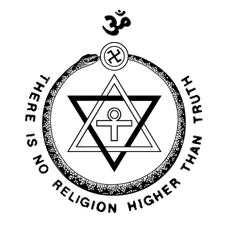Katherine Tingley
You can help expand this article with text translated from the corresponding article in German. (November 2017) Click [show] for important translation instructions.
|
Katherine Tingley | |
|---|---|
 Katherine Tingley | |
| Born | Katherine Augusta Westcott July 6, 1847 |
| Died | July 11, 1929 |
Katherine Augusta Westcott Tingley (July 6, 1847 – July 11, 1929) was a social worker and prominent Theosophist. She led the American Section of the Theosophical Society after W. Q. Judge. She founded and led the Theosophical community Lomaland in Point Loma, California.
| Part of a series on |
| Theosophy |
|---|
 |
Early life
Tingley was born in Newburyport, Massachusetts, on July 6, 1847, the daughter of James P. and Susan Westcott, of early colonial ancestry.[1]
Career
She was employed as a social worker in New York City when she met William Quan Judge. She joined the Theosophical Society on October 13, 1894.
In 1895, disputes between Judge and Annie Besant led to a split, with Judge taking most of the American section with him, and leading it for one year until his death in 1896. At that point Tingley became the new head of the Universal Brotherhood and Theosophical Society, although her identity was concealed for one year. In 1898, a group of roughly 200 theosophists led by Ernest Temple Hargrove seceded from Tingley's organization, and formed a rival group based in New York City. [1]
She conducted two theosophical crusades around the world. She was the founder of the International Brotherhood League, and also of the Summer Home for Children, Spring Valley, New Jersey, of a home for orphan children in Point Loma, California, and of several academies for boys and girls in Cuba. She did relief and emergency hospital work after the Spanish–American War and was instrumental in establishing hospitals in Manila and Cuba.[1]
On February 13, 1900, she transferred the Society's international headquarters from New York City to a new colony she called Lomaland, located in the Point Loma community near San Diego, California. Her settlement included Raja-Yoga School and College, Theosophical University, and the School for the Revival of the Lost Mysteries of Antiquity.[2][3][4]
In 1901, the Los Angeles Times printed a story entitled "Outrages at Point Loma; Exposed by an ‘Escape’ from Tingley. Startling Tales told in this City. Women and Children Starved and Treated Like Convicts. Thrilling Rescue." It made various claims against Tingley, and she immediately filed a lawsuit against the paper for libel and won the following year, resulting in other papers being much more reluctant to attack her publicly.[5][6]
In 1913 she founded the Parliament of Peace and Universal Brotherhood and in 1919 the Theosophical University at Point Loma. She established several theosophical branch centers in America and in Europe, and also a summer school for children at Visingsoe, Sweden. She was the editor of the Theosophical Path.[7] Many theosophical magazines were published under her direction in Germany, Holland and Sweden. She was the author of "Theosophy and Some of the Vital Problems of the Day," "Marriage and the Home," "Theosophy, the Path of the Mystic." [1]
Personal life
In 1888 she married Philo B. Tingley, inventor, and lived at Point Loma, California. [1]
Legacy
After her death, her successors transferred the society to Covina, California and then to Pasadena, where it currently exists.
Literature
Sievers, Martin: Purpurkvinnan. Historien om Katherine Tingley och teosoferna på Visingsö, 2013. ISBN 978-91-637-2038-3 (in Swedish)
See also
References
- ^ a b c d e Binheim, Max; Elvin, Charles A (1928). Women of the West; a series of biographical sketches of living eminent women in the eleven western states of the United States of America. p. 88. Retrieved 8 August 2017.
 This article incorporates text from this source, which is in the public domain.
This article incorporates text from this source, which is in the public domain.
- ^ San Diego Historical Society: Katherine Tingley biography
- ^ "Katherine Tingley". ISIS English. Retrieved 2020-04-24.
- ^ "Katherine Augusta Westcott Tingley | American theosophist". Encyclopedia Britannica. Retrieved 2020-04-24.
- ^ Kirkley, Evelyn A. (Winter 1997). Crawford, Richard W. (ed.). ""Starved and Treated Like Convicts"". The Journal of San Diego History. 43 (1). San Diego Historical Soc.
- ^ "Religion on Trial: Courtroom Drama and Media Narratives in Theosophist Katherine Tingley's 1901 Libel Case | PAPERS". papers.aarweb.org.
- ^ "Katherine Augusta Westcott Tingley (1847-1929)". San Diego History Center | San Diego, CA | Our City, Our Story. Retrieved 2020-04-24.
External links
- Works by Katherine Tingley at Project Gutenberg
- Works by or about Katherine Tingley at Internet Archive